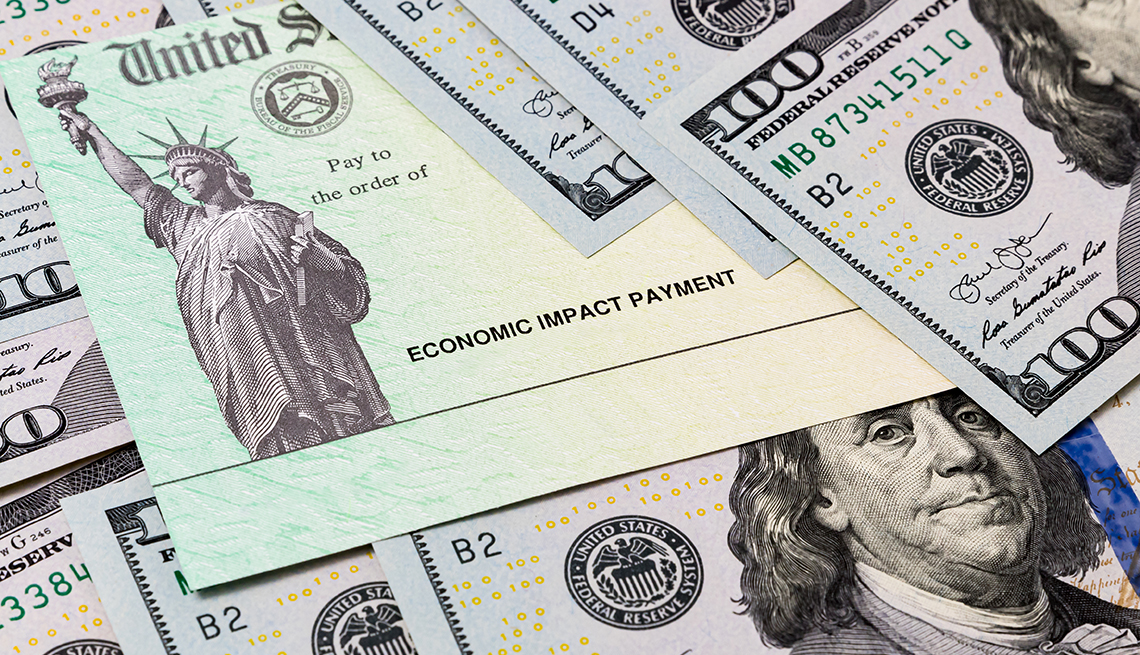Play all audios:
A married couple with two qualifying dependents, for example, are eligible to receive a maximum credit of $5,600, depending on income limits. And if you brought a baby into the world last
year, you’ll be able to file for up to $1,400 that you’re owed for your new family member if you claim the child as a dependent. The size of the credit, however, gets reduced for single
filers with adjusted gross income (AGI) of more than $75,000 and for married couples filing jointly with earnings of more than $150,000. For heads of household, the credit is reduced between
$120,000 and $112,500. The credit disappears entirely for individuals with AGI above $80,000 and for married couples filing jointly who earn more than $160,000. Heads of household with
incomes of more than $120,000 also don’t get the stimulus check. Most eligible Americans have already received the payments, according to the IRS. Some people may not have received all of
their third-round stimulus money because the IRS based the EIPs on the income and number of dependents listed on a person’s 2019 or 2020 tax return. But the full amount of the 2021 Recovery
Rebate Credit is based on a person’s 2021 return. So if an individual’s circumstances changed last year, such as by adding a baby (which means an additional dependent) or earning less money
(which could result in someone’s becoming eligible for a stimulus payment), the IRS has not factored those changes into their payment amounts, because the agency wasn’t aware of the changes
before sending out the checks. “Anyone that had a baby in 2021 is eligible, as there is no way the IRS would know that, so they definitely want to claim the Recovery Rebate Credit,” says
Lisa Greene-Lewis, a CPA and tax expert at TurboTax, the online tax preparation software provider. Similarly, if a grandparent can claim, say, a grandchild or another relative as a new
dependent on their 2021 tax return, they would also be able to claim the rebate, she says. WHO MAY BE ELIGIBLE TO RECEIVE MORE STIMULUS MONEY * Parents of a baby born in 2021 who claim the
child as a dependent on their 2021 tax return * Families who added a dependent, such as a parent, grandchild or foster child, on their 2021 tax return who was not listed as a dependent on
their 2020 return * Single filers who had incomes above $80,000 in 2020 but less than that in 2021; married couples who filed a joint return who earned more than $160,000 in 2020 but made
less money in 2021; and head-of-household filers with incomes above $120,000 in 2020 but less than that in 2021 * Single filers who had incomes of between $75,000 and $80,000 in 2020 but
earned less in 2021; married couples who file jointly who had incomes of between $150,000 and $160,000 in 2020 but less than that in 2021; and heads of household who had incomes of between
$112,500 and $120,000 in 2020 but made less money in 2021 Even if you didn’t qualify for the first and second round of stimulus payments in 2020, “if you had a tough time financially in 2021
and your income is lower [than the IRS threshold], you will get the credit” on your 2021 return, Steber says.

